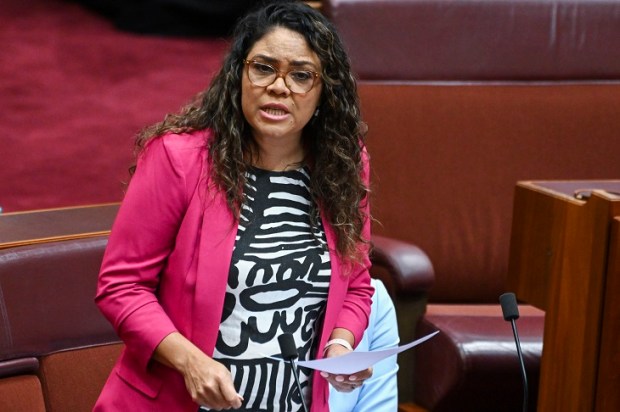While Australians are worried about the housing shortage and how to pay expensive electricity bills, the Liberal Party frets about ‘gender balance’ and identity politics. When considering the Liberal Party’s post-election convulsions, its newly minted leader, Sussan Ley, intimated that her party failed to appeal to women. From there it is possible to infer that it has a ‘women’ problem.
During the election, the then Opposition Leader, Peter Dutton, reminded the electorate of this problem when he was asked to comment upon the momentous decision of the United Kingdom Supreme Court that there are only two sexes, male and female, and that a woman is a biological female at birth. Instead of using the opportunity to confirm the validity of this commonsense decision, Dutton, seeking to avoid the electorate’s opprobrium, neatly sidestepped the issue by disingenuously stating that this was a UK decision which is not relevant to Australia and that, in any event, the election was fought on cost-of-living issues. It seemed he was reluctant to comment on a controversial topic which potentially confutes Australia’s self-identification laws, adopted by most State Parliaments, resulting in a failure to protect young women against the participation of biological males in female-only sports.
Here is the sting: if the Liberal Party is unable or unwilling to define a ‘woman’, then surely it follows logically that it cannot have a ‘women problem’. Indeed, such a problem could only exist in circumstances where an identifiable group of people – women – do not vote for the Liberal Party. Readers may find this reasoning facetious and, indeed, even though its logic is impeccable, it was meant as an acerbic comment on a sad situation.
So, let us assume that there is a ‘women’ problem, even if it is somewhat of a mystery as to how it is possible to collect incontrovertible evidence of the existence and scale of the problem. The more prominent issue is this: how should the Liberal Party respond to the problem? What needs to be done?
A good start is to consider the views of the founder of the Party, Sir Robert Menzies, Australia’s longest serving Prime Minister. David Furse-Roberts’s book Menzies: The Forgotten Speeches has an entire chapter on the Status and Role of Women. The first section in the chapter, entitled Women for Canberra, is based on a broadcast delivered by Menzies on January 29, 1943. The Prime Minister said:
Of course, women are at least the equals of men. Of course, there is no reason why a qualified woman should not sit in Parliament, or on the bench, or in a professional chair, or preach from the pulpit, or, if you like, command an army in the field. No educated man today denies a place or a career to a woman because she is a woman.
But there is a converse proposition which I state with all respect but with proper firmness. No woman can demand a place or a career just because she is a woman. If it is outmoded and absurd to treat a woman’s sex as a political disqualification; it seems to me equally absurd to claim it as a qualification in itself…
For myself, I declined to vote for any woman just because she is a woman, but I will vote for her with no prejudice and with great cheerfulness if I am satisfied that she is, in the homely phrase, ‘The better man of the two.’
For, like most electors, I am not half so interested in the sex or social position or worldly wealth of my representatives and rulers as I am in the quality of their minds, the soundness of their characters, the humanity of their experience, the sanity of their policy, and the strength of their wills.
This statement reveals that advocating gender quotas was entirely inimical to Menzies’ classical liberal philosophy. Hence, one would expect the Liberal Party, founded by Menzies, to pre-select candidates based on merit, and regardless of sex. Nevertheless, railing against ‘white male privilege’ continues to be the rallying cry of those who control the mainstream media, academia, and politics. The demand for affirmative action quotas is heard increasingly.
Affirmative action policies involve profound issues related to matters of social equality and fairness and raise the question as to whether it is ever justifiable or permissible to prefer women for political office merely based on sex. This question focuses on the propriety of such preferment considering that female students now make up the majority demographic in higher institutions of learning in Western societies. For example, in Britain, a third of them attend university, compared with just a quarter of men. Once in university, women do better and are significantly more likely to graduate with a first-class degree. In many courses, female students are in the majority. British women constitute 55 per cent of those enrolling in courses in medicine and dentistry and 62 per cent are studying law. Also, women increasingly dominate the professions in Britain. They hold half of the top professional and managerial jobs in that country. Furthermore, since 2009 women working full time have earned more than men. According to British journalist David Goodhart, the gap between male and female earnings ‘is only generated by conflating the earning of women of all ages, occupations and full-time/part-time status and comparing them with the same male total – and because many women work part time (43 per cent to 13 per cent for men)’.
The former Prime Minister of Australia, Scott Morrison, favoured the setting of gender quotas in the pre-selection of Liberal candidates. At least five female Liberal politicians publicly committed to supporting the setting of female quotas. These included the current Opposition Leader, Sussan Ley. They argued that quotas were necessary to change the ‘toxic culture’ of gender exploitation in Canberra. The setting of quotas was thus regarded as a convenient device to increase the representation of women in the Australian Parliament – a device that worked! The ABC has predicted that Australia will be represented in the 48th Parliament ‘by more women in Federal Parliament than ever before’ and anticipates that the number of women in the House of Representatives ‘will grow by at least five and as many as 16’.
Other members of the Liberal Party have suggested that, instead of quotas, the party should set targets. In this context, it is important to note that the achievement of targets does not amount to the attainment of mandatory quotas because a target is only an expectation that some measurable change will occur, thereby allowing flexible statistical results. However, even if it is a numerical aspiration, a target may still involve the pre-selection of less meritorious candidates than those who would typically have been selected. This would happen if the proponents of targets felt that the pursuit of equal opportunity must, in practice, lead to equality of results. Further, it would also assume that skills and interests are uniformly distributed throughout society.
If so, the setting of targets would result in the implementation of the principle of equality of results, not equality of opportunity. This, in practice, means targets may operate as a de-facto quota because, if a target does not have to be met, it is a meaningless gesture. Thus, the question is not whether a quota or a target would improve the gender balance of the Liberal Party. Instead, the question is whether this practice respects the principle of equality of opportunity or, alternatively, leads to equality of results. In setting quotas or targets, it would no longer be possible for the Liberal Party to claim that people are appointed purely on merit because the principle of equality of opportunity would be compromised.
It is interesting to note that the quota language, so flippantly promoted by parliamentarians, would, in fact, involve the creation of a group of wronged, potentially angry male candidates who may not have done anything to frustrate the opportunities of women. Of course, the setting of quotas or targets does not involve the pre-selection of ‘unqualified’ women. Nevertheless, the practice still fatally compromises the principle of equal opportunity because the most ‘meritorious’ applicant might fail to gain pre-selection.
Admittedly, the concept of ‘merit’ itself is nebulous. However, we know that logically; two human beings cannot be equally qualified because there is always room for differentiation. One candidate must necessarily be better or more suitably qualified than another. This is because there are human characteristics and qualities that cannot be readily assessed in a pre-selection interview but, nevertheless, provide ways for interviewers to differentiate applicants from each other. In this context, it is appropriate to refer to a statement by Barry R. Gross who admonishes his readers about the danger of embracing the principle of equality of results:
This new ‘equality’ substitutes for the rule of law or principle which took many centuries to establish, a rule of men which is no more than a rule of privilege and influence so rightly despised by the founders of liberal democracy.
It is a sad demonstration of our social decay when qualifications do not matter so much in these dark days; rather it is all about gender and ethnicity. We have seen too many qualified Caucasian men passed over for employment in favour of far less qualified women and minorities.
The Liberal Party does indeed appear to have a ‘women’ problem, but it is not that there are not enough female representatives or candidates. Instead, this problem lies primarily in the quality of female representation and the fact that it remains possible for MPs to be promoted beyond their level of competence on account of their gender. It is a problem which reveals the challenge of finding the most meritorious or suitable candidates to represent the electorate in Canberra, regardless of gender or ethnicity.
Gabriël A. Moens AM is an emeritus professor of law at the University of Queensland and served as pro vice-chancellor and dean at Murdoch University.
Augusto Zimmermann is a professor of law and served as associate dean at Murdoch University. He is also a former commissioner with the Law Reform Commission of Western Australia.
Zimmermann & Moens are the authors of The Unlucky Country (Locke Press, 2024).

























